Share
Working at ESO
Are you interested in working in areas of frontline technology and in a stimulating international environment? Do you feel your profile matches our requirements? Learn more about our current vacancies and apply online. Read more..
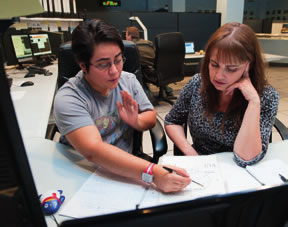
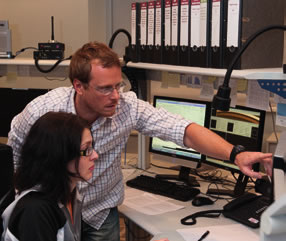

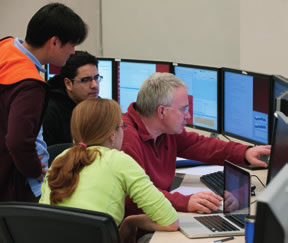
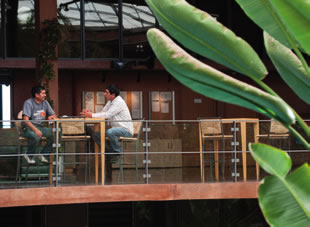

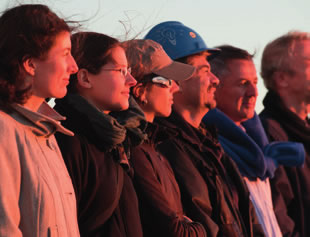

The European Organisation for Astronomical Research in the Southern Hemisphere (ESO) is the foremost intergovernmental astronomy organisation in Europe and the world's most productive ground-based astronomical observatory. ESO carries out an ambitious programme focused on the design, construction and operation of powerful ground-based observing facilities enabling astronomers to make important scientific discoveries.
ESO operates unique world-class observing sites in northern Chile: La Silla, Paranal and Chajnantor (home to ALMA, in which ESO is a major partner). At Paranal, ESO runs the Very Large Telescope, one of the world's most advanced optical astronomical observatories, while on Cerro Armazones, the organisation is completing the 39-metre Extremely Large Telescope (ELT), which will become "the world's biggest eye on the sky" and the operations of which will be fully integrated into the Paranal Observatory. ESO is also a founding member of the Cherenkov Telescope Array Observatory (CTAO), the world's largest and most sensitive high energy gamma-ray observatory, whose southern site will be close to Paranal and Armazones. Lastly, ESO operates a substantial data archive and IT infrastructure, which contributes to more than one third of all scientific papers prepared using ESO's facilities.
Based at its Headquarters in Garching, near Munich, Germany, ESO is advertising its key leadership position of:
Director General
Garching
Deadline 28/02/2025
The current ESO Director General (DG) will complete his second term at the end of August 2026. Over the past decade, ESO has undergone a period of outstanding scientific, technical and organisational success, growing to 16 Member States, with Australia as a strategic partner and Chile as host state. This includes bringing the Extremely Large Telescope (ELT) to an advanced stage of construction, together with its first light instruments, the continuing operation and development of the La Silla and Paranal observatories, and with its international partners, ALMA, and soon CTA. The rich scientific harvest from these activities has led to ESO's position as one of the world's most productive astronomical observatories.
ESO Council now wishes to build on this record by appointing an outstanding DG through international open competition. The main tasks for the new DG will be to manage the ESO programme, and to work with Council in developing and implementing the organisation's strategy while keeping budgets in balance. This involves sustaining ESO's leadership and excellence in astronomical science, and overseeing the completion of the ELT while at the same time maintaining the world-leading productivity of ESO's facilities. The ELT is on track for first light by the end of the decade and in addition ESO has recently initiated the Expanding Horizons programme to consider the organisation's post-ELT programme.
Experience, skills and responsibilities
Holding a PhD in astronomy or a related field, the DG should have internationally recognised scientific excellence in observational astronomy. The person must be able to help formulate and take forward a vision and strategy, convey it to a range of stakeholders, and take the necessary steps for implementation once approved.
The DG must be highly committed with excellent communication skills. A proven track record of highly effective leadership within a well-known and internationally oriented astronomical institute or organization, will be an essential asset for the position.
The DG should have the ability to lead, direct and manage a team of senior staff to execute and implement large programmes in diverse settings. At ESO they include La Silla - Paranal operations, upgrades and evolution, the instrumentation programme, the ELT completion, planning and development, and in cooperation with ESO's international partners, ALMA operations as well as the development of the CTA.
The DG must display a management style that maintains a positive work environment with a structure that guarantees a highly motivated, responsive and productive staff. They must maintain close links between the different ESO sites and ensure effective collaboration within the organisation.
The DG must ensure an effective deployment and use of resources, demonstrate an ability to effectively navigate challenging economic conditions and address them with resilience, and be able to prioritise resources to achieve organisational goals. The person must have a focus on sustainability of the organisation in all areas related to financial, personnel, and environmental aspects.
The DG should be able to work with the ESO member states represented through Council in the development and evolution of ESO's strategy, including the Expanding Horizons initiative, and ensure the organisation makes headway in the global arena in which it operates.
The DG must understand as well as master the political dimension of ESO and be able to maintain and develop excellent relationships with member states and with its international partners, both inside and outside Europe; the scientific (users) community, institutes engaged in astronomy, international scientific bodies and agencies, governments and the EU. Maintaining excellent relations with the Republic of Chile and strategic partner Australia is a key requirement.
To conclude, ESO has established its "ESO Values" which the DG is expected to champion and personify, as set out here: https://www.eso.org/public/about-eso/mission-vision-values-strategy/
Communication and language skills
Excellent communication skills and a very good knowledge of English, both oral and written, are essential. Knowledge of Spanish / and or German would be an asset but is not a requirement.
Contract and remuneration
The position of DG is a full-time post, with an initial appointment for a fixed 5-year term, with the possibility of renewal of the appointment once for an agreed set of years, subject to performance, organisational requirements and approval by ESO Council.
We offer a comprehensive remuneration package in line with the ESO staff rules and regulations, including a competitive salary, pension scheme and medical insurance, educational and other social benefits, as well as financial and logistical support in relocating. ESO has attractive family-friendly and modern flexible-working policies. More information on conditions of employment may be found here: https://www.eso.org/public/jobs/conditions/intstaff/
Appointments are subject to medical clearance and standard pre-employment screenings.
Duty Station and travel
Garching near Munich, Germany.
The DG is expected to live in the general Munich area. Frequent travel between ESO Headquarters in Garching, Germany, the observatory sites and Santiago campus in Chile and to institutes, agencies and other organisations around the world will be required.
Application and process
Persons interested in this position should send a brief CV and letter of motivation to Fiona Brazil, ESO Head of Human Resources at: HOHR@eso.org. Any general inquiries on the role, in advance of the application deadline, should be sent to the President of ESO Council, Professor Tom Ray, tr@cp.dias.ie.
The deadline for applications is Friday 28 February 2025.
All inquiries and applications will be treated with strict confidence.
In-person interviews for shortlisted candidates are expected to be held in early May in the Munich area, with final in-person interviews scheduled for early October. Please note that applicants will be required to participate in assessment activities as part of the selection process. The selected candidate will ideally join ESO in the first half of 2026 to enable handover activities with the present DG and familiarisation with the organisation.
ESO has established diversity as an important value of the Organisation, is committed to providing an equal opportunities environment and is actively seeking to promote a diverse and inclusive workforce.
No nationality is in principle excluded from employment, however, recruitment preference will be given to nationals of Australia, Austria, Belgium, the Czech Republic, Denmark, Finland, France, Germany, Ireland, Italy, the Netherlands, Poland, Portugal, Spain, Sweden, Switzerland, the United Kingdom and Chile irrespective of gender, age, disability, sexual orientation, ethnicity or religion.
